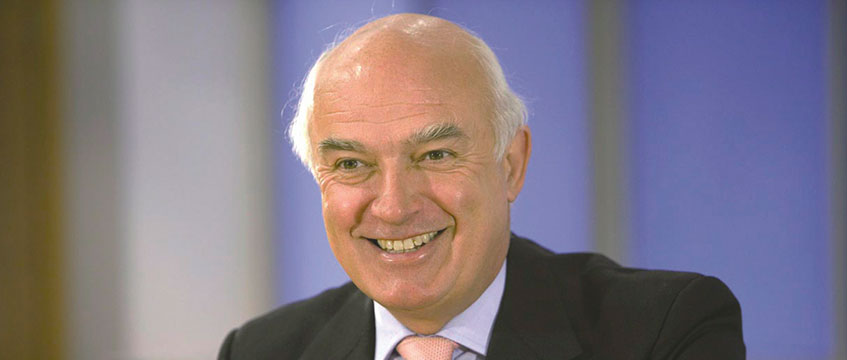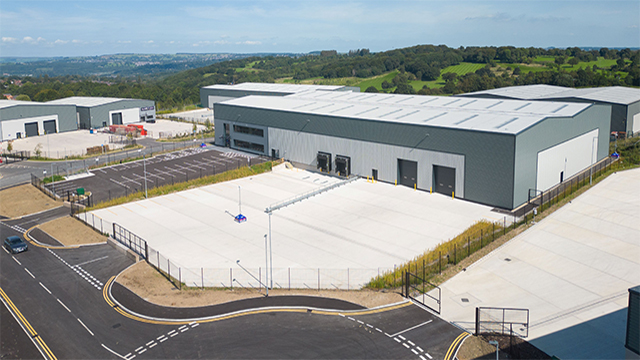THE LEHMAN CHRONICLES: Aubrey Adams, former Savills chief executive, member of the British Land board, head of property at RBS’s Global Restructuring Group, current chairman of L&Q and member of Tritax Big Box’s board, recalls the conditions leading up to the crash, and speculates on a future downturn.
Looking back
 Did you sense there was a crash coming?
Did you sense there was a crash coming?
Most property people felt the market in 2007 and 2008 was getting unreal. Secondary property was being valued on prime yields and LTVs seemed crazy. I remember looking at a deal where Lehman and HBOS were competing to finance a German retail portfolio that had been recently revalued with a portfolio premium, probably 10% more than even an optimistic true value, and they were offering 97% LTV.
What are your abiding memories of the time around the collapse of Lehman itself?
Disbelief and concerns about knock-on effects. It was a bit like the Brexit vote in a way. You think the world is going to come to an end in a bang but actually it didn’t. The US Treasury and Fed rescued Fannie Mae, they let Lehman go and then realised they couldn’t let it go on so then rescued AIG. It was as if they were making one example of Lehman. After that everyone was rescued in some shape or form. It didn’t get suddenly worse after then but the extent of it was then something that just gradually came out.
I was on the board at British Land at the time of its rights issue and whatever anyone said about it being for a war chest, the truth was that big investors were saying that things were risky and we were very close to breaching covenants. If that happens, the house of cards comes down.
How has it shaped things for you since?
I joined the Global Restructuring Group of RBS at the end of 2012 and was there for two-and-a-half years. Even before then I remember speaking to Stephen Hester, who was brought in to rescue the bank, who explained that the capital ratios were ridiculous – they were holding about 4% capital against risk-weighted assets, whereas now it sensibly around 15%. They were not going to make profits, so assets had to be gotten rid of. It is almost a golden rule now, with the benefit of hindsight and old age, that you actually need quite big levels of capital as a bank and perhaps that should apply to property companies as well.
The US Treasury and Fed rescued Fannie Mae, they let Lehman go and then realised they couldn’t let it go on so then rescued AIG. It was as if they were making one example of Lehman.
During my time there you saw gradually the extent of what had been going on. The deals that had been done were just crazy. The only way to have justified them was on the assumption that the market was going to keep booming. It was just bonkers.
The salutary lesson, though, was that even apparently good investments can collapse. It emphasised how markets can just dry up and professional valuations become meaningless, which was something most SMEs could not understand or accept.
Looking forward
What do you think is the likelihood of another crash in the short to medium term, and why?
A lot of property portfolios are overvalued at the moment. The problem with RICS valuations is that they are backward looking and out of date. In the rest of the world people do forward-looking appraisals. I can see some companies getting in trouble and there being bailouts through takeovers.
I think a crash is unlikely but there being a correction and stagnation with low growth that will be worse if we get a hard Brexit. I think the fundamentals of the market are not that bad. It is unlikely that banks will push too hard on LTVs but some alternative lenders might do. Interest rates are unlikely to be a problem as I think they will be kept low. We also have QE and better regulation than before.
What things should investors look out for that might signal another crash?
An interest rate hike, the ending of QE and lots of loans at LTVs of more than 70%.
What sector or geography do you think looks most susceptible to a downturn?
High street retail has been well flagged but retail parks must also suffer from the Amazon effect – only a few can become “last-mile” units. I think retail is going to be a hell of a problem and even bigger than people think with the big-name retailers being pulled in. People are talking about tinkering with business rates but that won’t solve things. I have also been a long-term bear on secondary offices, which make up most of the market, given changes in working styles.











